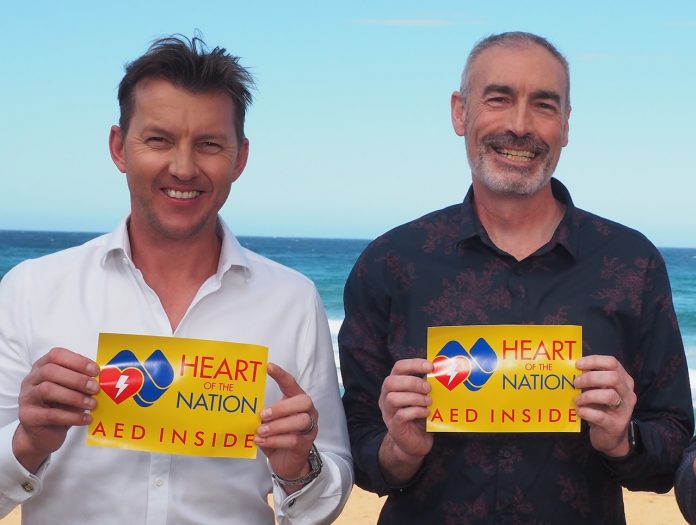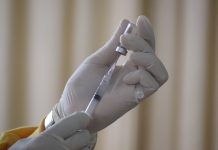
There’s been no shortage of media coverage about how former Yellow Wiggle, Greg Page, had a heart attack on stage in 2020 and was revived using a defibrillator.
He has gone on to become an ardent campaigner for heart health, setting up his own charity Heart of the Nation, pushing for businesses and homes to install defibrillators and create awareness around their locations.
The original lead singer and founding member of The Wiggles, Greg spent more than a decade as part of the hugely successful children’s band.
It was at a Wiggles reunion show in January, 2020, to raise money for bushfire relief, that Greg collapsed on stage and stopped breathing before being revived using a defibrillator.
That experience prompted him to found Heart of the Nation.
Greg says his health is now good and he is back on top of things.
“The irony of my situation is that before I had a cardiac arrest, I thought I was healthy as well, so it’s one of those things where you can be totally under the radar and think that you are fighting fit and literally just drop dead without any warning whatsoever.”
Only 10 per cent of people survive a sudden cardiac arrest.
Greg says that while Heart of the Nation has only been around for about 18 months, he was getting a lot of positive feedback from people and the campaign gained momentum with a one-hour TV special on Channel 9 devoted to sudden cardiac arrest and the chain of survival.
Heart of the Nation is now focussing on two initiatives.
The first is for people who already have an automated external defibrillator (AED) at their workplace, to sign up to Heart of the Nation network for free.
“We send them stickers to put on the front door of their window or business to say they are a member of Heart of the Nation and that they have an AED inside so that people in the community know where to find one if they need it.
“We then also map those locations on an app that is available right across Australia.
“The next initiative that we’re really going to focus on is what we call Heart of the Nation Communities, a program where we provide communities with a fund raising platform to raise the funds for an AED package to go somewhere to be accessed 24/7 if it’s ever needed, because 80 per cent of sudden cardiac arrests happen in the home, but the home is probably where there is least access to an AED.
“If your community wants to get together to do this you could do a letterbox drop of your immediate area and get people to contribute to the fund-raising process and have it located maybe on a garage wall.
“We provide a tracking device for the AED to help keep it secure. The tracking device shows where it’s going, so you know if it’s going down the street or if somebody is taking off with it.
“We provide training in Cardiopulmonary resuscitation (CPR) and AED use as well for the community via an online portal.”
Greg says the cost of an AED package starts at $2700 which includes the device, the cabinet and the tracking device as well as a set of pads and batteries to be changed, generally around the four-year mark if the AED hasn’t been used, as well as the online training and app.
“One of the things with our app that’s going to be online soon is the ability for somebody to use it to call 000 and at the same time send for help from neighbours who also have the app.
“So if you are at home and your partner goes down with a cardiac arrest you can use the app to call 000 and seek help from neighbours all in one easy button press. The app will also then guide those responders to the nearest AED, so if somebody who’s not familiar with your area happens to be around at that point in time, they’ll be able to find the nearest AED and bring it to you so that you can stay there and keep doing CPR while you wait for the ambulance to arrive.
“The hope is the AED arrives much more quickly than the ambulance does because ambulance response times are protracted in most parts of Australia and when you get an AED on somebody within the first three to five minutes the chance of surviving skyrockets.
“If people come across somebody who is not responding; if you can’t wake somebody up; if they are on the floor and you see them collapsed, then call 000 and send for an AED at once. If they are not responding, chances are they will go to the next stage which is that they are not breathing. At that point you need to start CPR and use the AED as soon as it arrives.
“Call, push shock. Call 000, push hard and fast in the middle of their chest, then use the AED to shock the patient,” he said.
Find out more at www.heartofthenation.com.au.


































